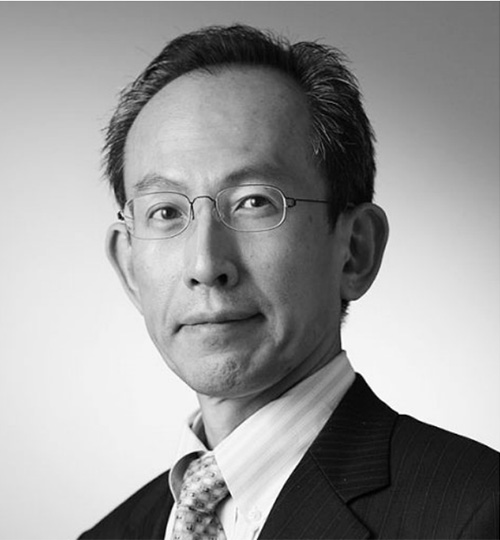 Dr. Kitsuregawa graduated from the Electronics Engineering Department, Faculty of Engineering, the University of Tokyo in March 1978, completed his doctorate in information engineering at the same university and received a Ph.D. in 1983. He became a lecturer at the Institute of Industrial Science in April 1983, an associate professor in 1984, and a professor in 1997, all at the same university. Since 2013, he has been director general of the National Institute of Informatics.
Dr. Kitsuregawa graduated from the Electronics Engineering Department, Faculty of Engineering, the University of Tokyo in March 1978, completed his doctorate in information engineering at the same university and received a Ph.D. in 1983. He became a lecturer at the Institute of Industrial Science in April 1983, an associate professor in 1984, and a professor in 1997, all at the same university. Since 2013, he has been director general of the National Institute of Informatics.Dr. Kitsuregawa has made numerous distinguished achievements in the database field over a long period. He was a leading researcher on the high-speed operation of a hashed relational database. With a conventional simple method, the relational database operation cost is the square of the number of records. To solve this problem, he developed the GRACE hash method, which operates a database at a linear cost by combining a dynamic destaging method, bucket adjustment and different implementation methods. This method is referred to in Wikipedia as a basic method of operating a relational database. Today, all major database software programs use a hash algorithm. Dr. Kitsuregawafs research established the foundation of this algorithm.
In parallel with the above research, he studied the technique of ghardware sorth, and brought it into a commercial system. His hardware sort was implemented in office computers. In 2000, this system completed the Datamation sort benchmark (sorting of one million 100-Byte records) in less than one second, breaking the world record.
In recognition of his achievements in enhancing database performance, including those mentioned above, he received the ACM SIGMOD E. F Codd Innovations Award, which is the most prestigious award in database system research. He was the first recipient from Asia.
In the 2000s, he invented an original database execution method for the Big Data era, a method he called gout of order execution,h and proceeded with its R&D. This method exploits asynchronous technology and was patented in Japan and the U.S. He received the 21st Century Invention Award, the top award in the university division from the Japan Institute of Invention and Innovation. In the Cabinet Officefs Funding Program for World-Leading Innovative R&D on Science and Technology (FIRST), which consisted of 30 researchers in Japan, he improved the method to boost the processing speed by a factor of 1,000. In collaboration with Hitachi, he developed a commercial system, which became the first to enter the realm of 100 TBytes in the TPC-H Benchmark. He applied this technology to clinical data analysis in the medical field, making it possible to build a super-high-speed analysis platform that can handle all clinical data in Japan (currently about 200 billion records generated over 6 years). This system is now used by many researchers.
For over 30 years, Dr. Kitsuregawa has been studying the construction of a gigantic data platform for the global environment. Currently, the volume of data exceeds 35 PBytes. It is an extremely unique system. It accumulates satellite images sent from the Ministry of Land, Infrastructure, Transport and Tourism, telemetry data from rivers, and radar data. It thus stores a large volume of data for the prediction of global warming. Since the database also has a large amount of measurement data from Asia and other regions, more than half of access attempts come from overseas, and a variety of applications have been developed. This project collaborates actively with researchers in other countries, such as Sri Lanka, Thailand and South Africa.
For his achievements mentioned above, he was designated a fellow by IEICE, IEEE, and ACM, and also received many awards, including Achievement Award from IEICE, Medal with Purple Ribbon, and Legion dfHonneur, Chevalier.
Dr. Kitsuregawa has contributed to the promotion of the information field both in Japan and abroad by serving as vice president of IEICE, chair of IEICE Technical Committee on Data Engineering, president of the Information Processing Society of Japan, president of the Database Society of Japan, chair of the Steering Committee of the IEEE International Conference on Data Engineering (ICDE), and chair of the Informatics Committee, Science Council of Japan.
As mentioned above, his contributions to the electronics, information and communication field are truly outstanding and we are confident that he would be a worthy recipient of the Distinguished Achievement and Contributions Award.